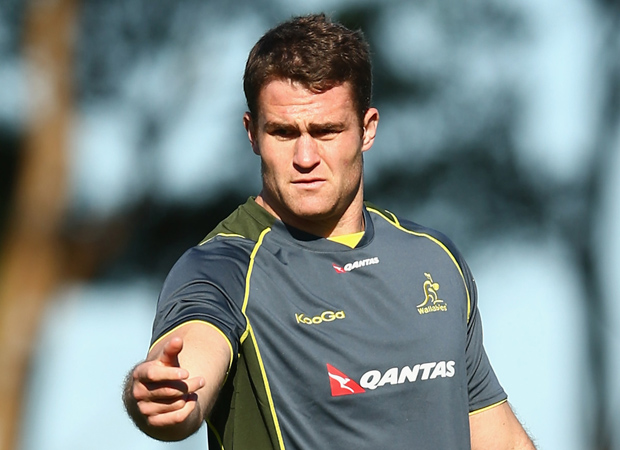 James Horwill’s arrival at The Stoop to join his new Harlequins team-mates will probably come sooner than he expected following his axing from the Australian World Cup 31. Horwill’s story shows just how quickly you can go from rags to riches in the international ranks, and make the return journey just as fast.
James Horwill’s arrival at The Stoop to join his new Harlequins team-mates will probably come sooner than he expected following his axing from the Australian World Cup 31. Horwill’s story shows just how quickly you can go from rags to riches in the international ranks, and make the return journey just as fast.
The big Queensland lock not only captained Australia in the 2011 World Cup, he was the forward talisman for the Wallabies. His great strengths were that on top of doing his set-piece work with aggression and accuracy, he had developed into one of the most effective forward carriers in the game.
Horwill’s ability to bump off tacklers and off-load was exceptional, and his lead-from-the-front style made him the automatic choice to captain Australia against the 2013 Lions, despite his regular disciplinary lapses.
That tour did not end well for the Wallabies, or Horwill, but there was no question about the importance of his captaincy to the Australians. There was a sense of euphoria in the Wallaby camp when a citing charge against him for a stamp to the head of the Lions lock, Alun Wyn Jones, in the second Test was dismissed, freeing him to play in the third Test decider.
Horwill might have done better to miss that heavy series-losing reverse in Sydney, because since then injuries and fluctuations in form – where previously he had been a picture of consistency – led to him losing the cast-iron right to be selected in the Wallaby second-row.
However, a strong late run in Australia’s title-winning Rugby Championship campaign – including as a starter in the crucial victory over New Zealand in Sydney a fortnight ago – suggested that Horwill was almost certain to make the cut.
What appears to have scuppered his chances is the return from the Northern Hemisphere of both Dean Mumm and Kane Douglas, both of them former Waratahs locks, who Australia’s coach Michael Cheika – until recently Waratahs coach himself – is more familiar with.
Cheika explained that the 30-year-old Horwill, who should be in his pomp with 58 caps-worth of experience in his locker, had been unfortunate. “He really played himself into contention,” Cheika said. “Maybe he was a bit further away at the start of the Rugby Championship, but the balance of the team that we wanted required just the two lineout-orientated locks, and we have that.”
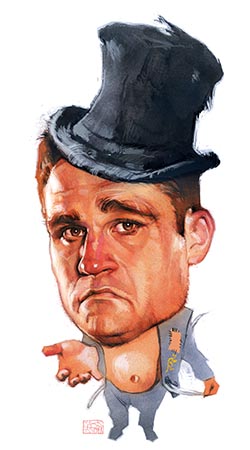 Horwill’s Queensland teammate Rob Simmons fits the lineout bill, as does former Exeter skipper Mumm, with heavyweights Douglas and Will Skelton as the tractor locks. However, when he takes up residency with Harlequins at least he will be close at hand should any of them be injured.
Horwill’s Queensland teammate Rob Simmons fits the lineout bill, as does former Exeter skipper Mumm, with heavyweights Douglas and Will Skelton as the tractor locks. However, when he takes up residency with Harlequins at least he will be close at hand should any of them be injured.
Among the other controversial selection calls in Cheika’s 31-man squad was the decision to pick the out-of-sorts Nick Phipps as one of only two scrum-halves, alongside Will Genia.
Despite Phipps having a shocker, and almost gifting the Championship decider to New Zealand after being sin-binned in the second half, he was chosen ahead of super-sub Nic White. It was White who clinched the victory over the All Blacks – and the title – with a long range penalty and a sniping try in a brilliant late cameo.
It did not appear to count as much in Cheika’s mind as the sparkling form Phipps showed over a year ago in helping the Waratahs to win him a Super 15 title, although the scrum-half’s familiarity with Waratahs and Wallaby fly-half
Brendan Foley was also no doubt an important consideration.
Cheika justified going into the World Cup with just two specialist scrum-halves because of his faith in the versatile veteran Matt Giteau to deputise at 9 if needed. It’s a risky strategy given that most of Giteau’s rugby for the last 15 years has been at inside-centre or fly-half, and that his first choice scrum-half, Genia, has only just recovered from injury.
The other area where the Wallaby coach appears to be playing with fire is at hooker, where again he selected only two specialists, in captain Stephen Moore and Tatafu Polota-Nau.
It is such a crucial position that it is hard to believe Cheika will not have his third choice hooker, James Hanson, squirrelled away somewhere in England for the duration of the tournament. Having to fly a replacement in from Australia at late notice, even with the speed of modern jets, would be a major headache – especially with the added complication of the tight matches the Wallabies are expected to face in the “pool of death”.
If some of Cheika’s decisions in his 17-14 split seem eccentric, Stuart Lancaster‘s England 31, which is expected next week, is likely to be more conventional. Although Lancaster is also expected to go with a 17-14 split, his squad will include three hookers and three scrum-halves.
The likely composition is: Props: Marler, M Vunipola, Cole, Wilson, Brookes. Hookers: T Youngs, Webber, George. Locks: Lawes, Launchbury, Parling, Attwood. Back Row: Wood, Easter, B Vunipola, Robshaw (c), Haskell. Scrum-halves: B Youngs, Care, Wigglesworth. Fly-halves: Ford, Farrell. Centres: Barritt, Burgess, Joseph, Slade. Back three: May, Watson, Nowell, Brown, Goode.


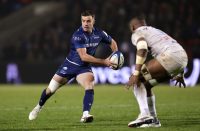
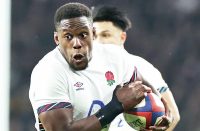
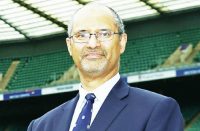



















Pingback: sistem racire